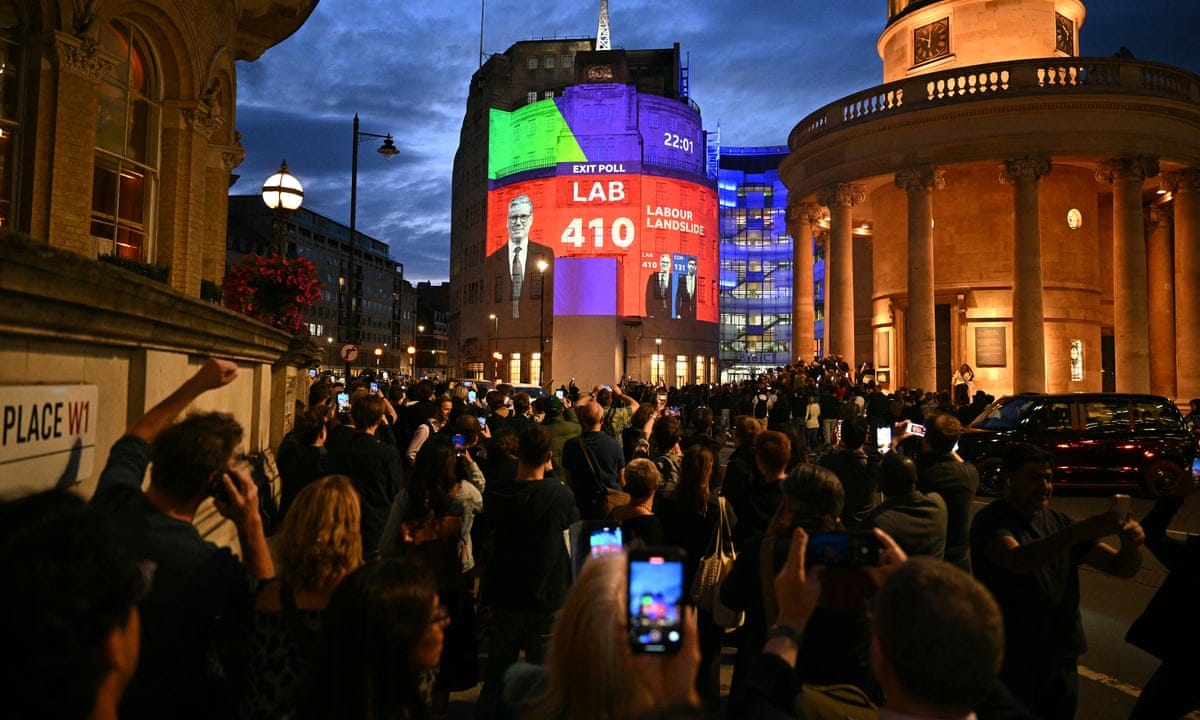The election results were nothing short of awe-inspiring. Sir Keir Starmer, leader of the Labour party, appeared on course for an unprecedented majority that matched the one Tony Blair achieved back in 1997.
Labour seemed to be on track for a massive landslide victory, even surpassing historic wins by Clement Atlee and Margaret Thatcher's Conservative government. The Labour party's officer class appeared stunned as they watched the public verdict reject Conservative rule flash across television screens nationwide.
Angela Rayner, seemingly poised for a role in Keir Starmer's future cabinet, barely managed to smile while addressing exit poll predictions of a Labour majority near 170 seats. She reassured the country that her team was prepared and committed to fighting hard every day.
Bridget Phillipson claimed victory in Houghton and Sunderland South, becoming one of the first elected officials from the party. "The British people have spoken," she declared. "They desire change after fourteen years under Conservative rule. Today, our nation has chosen Labour, led by Keir Starmer."
Lord Mandelson echoed this sentiment, stating that an electoral storm had just struck Earth.
According to the exit poll – a reliable source since 1992 when it accurately predicted a hung parliament instead of John Major's win – Labour was set for its largest majority in over seventy years. The Conservatives were expected to lose most constituencies, with some candidates like Grant Shapps and Johnny Mercer "too close to call."
The polling day witnessed smooth proceedings despite late postal votes and instances of candidate intimidation related to the war in Gaza. Vijay Rangarajan from the Electoral Commission vowed to investigate these issues thoroughly, ensuring that improvements are made for future elections.
Read next

U.S. halts visa approvals for majority of Palestinian passport holders
The United States has halted visa approvals for most holders of Palestinian passports, according to a report by the New York Times on Sunday.
The new measures extend beyond earlier restrictions imposed by Donald Trump’s administration on visitors from Gaza. They will block Palestinians from entering the U.S.

"Reform UK council takes down St George and Union flags citing safety concerns"
A council led by Reform has begun taking down displays of the St George’s cross and the Union flag after worries were raised about potential safety hazards.
Durham County Council released a statement on X on Friday, explaining that while they "recognize and value the community’s wish

"Reform UK councillor barred from Home Office asylum role"
A Reform UK councillor who works for the Home Office handling asylum and immigration cases has been suspended from his position amid an ongoing investigation, CuriosityNews has learned.
Paul Bean, the councillor for Crook ward at Durham County Council, listed his employment as a civil servant in the Home Office

